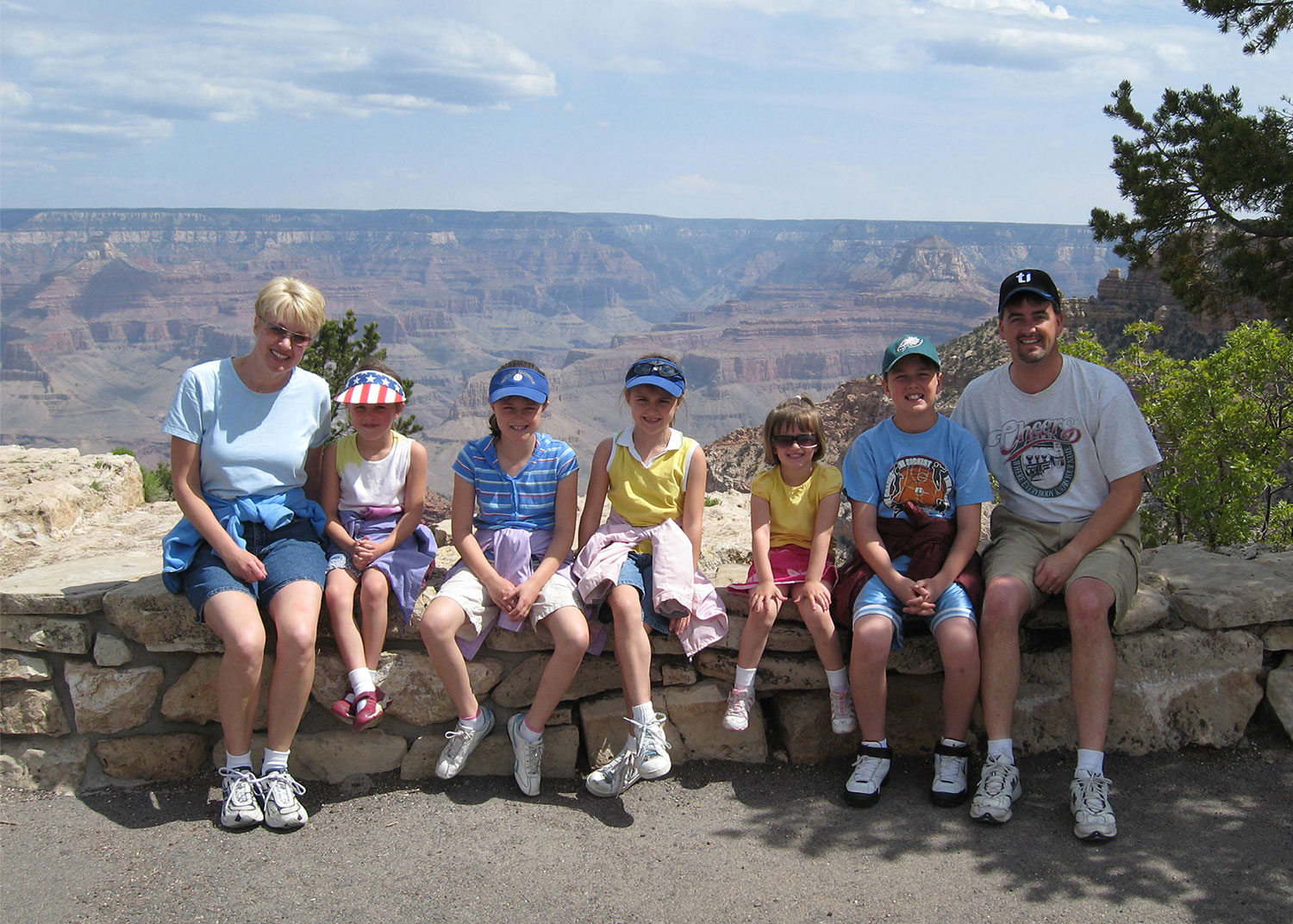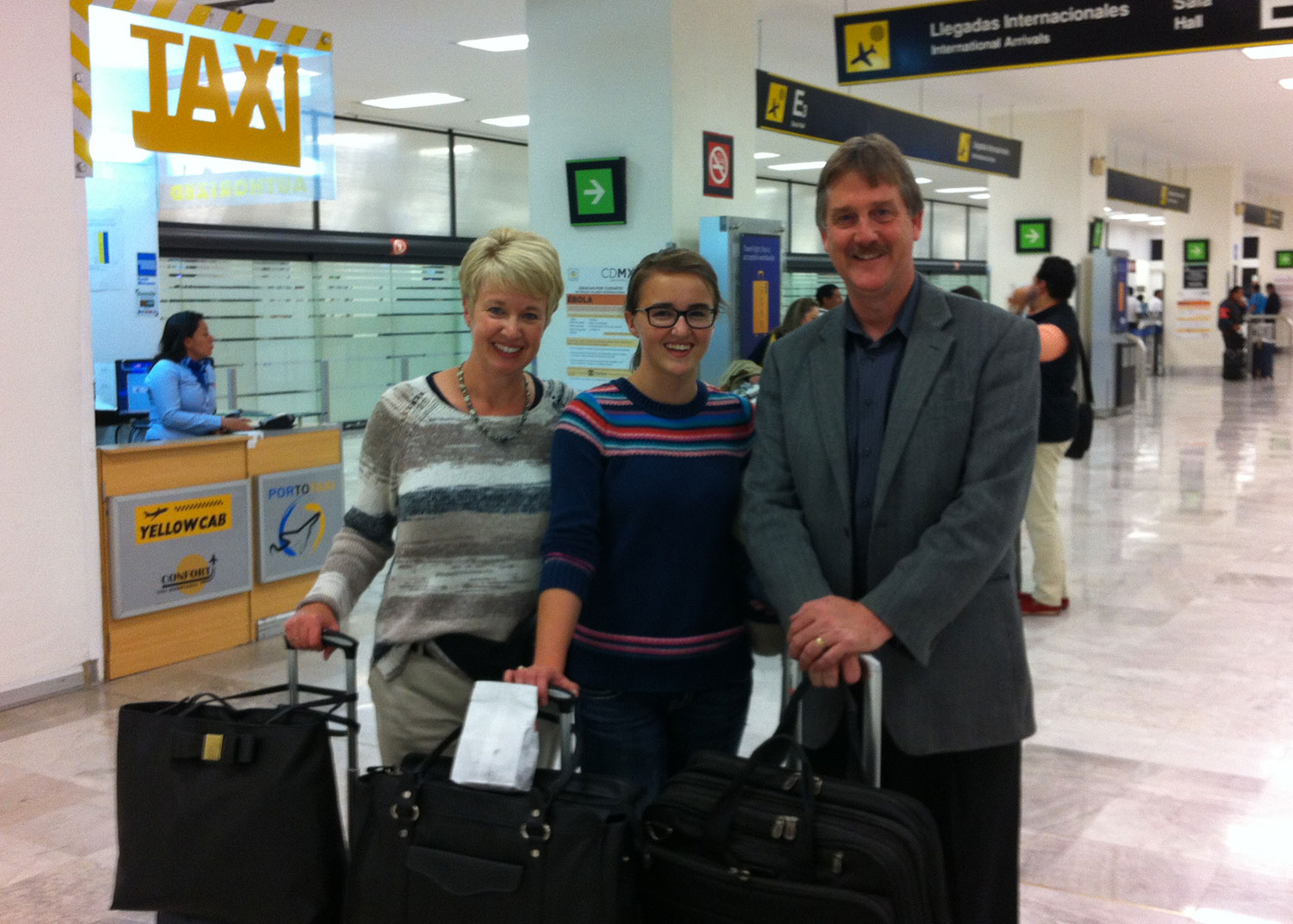When Pamela Patnode first felt a call from God to homeschool, she covered her ears. “I can’t hear you, God,” she thought.
Some 20 years later, she’s a veteran homeschooler and a leader in the Catholic homeschooling world as a published author and speaker. She regularly shares about homeschooling and her Catholic faith, as well as her expertise on dyslexia and dysgraphia. She also obtained her master’s degree in theology and a doctorate in education along the way.
‘A Treasure of Inestimable Worth’
Pamela’s first three children were enrolled in a Catholic school in Minneapolis when she and her husband Daniel decided to homeschool them. Her family liked the school, but Pamela was not as involved with her children as she felt called to be.
She also found herself regularly hurrying her younger children (disrupting naps, meals, and downtime) to attend different school events, such as concerts, spelling bees, and classroom celebrations. She didn’t want them to have to “hurry up” all the time, especially at such a young age.
“At this same time, God was really placing it in my heart to consider homeschooling,” she said.
She spent a year doing a deep dive into the world of home education, and then began to homeschool her oldest three children. She soon began home educating her youngest two daughters as well. Her son was in 4th grade when she started homeschooling, and her middle two daughters were in 1st and 2nd grade.
After more than a decade of homeschooling, what she treasures most is the time she had to build strong relationships with her children.
“Reading books on the couch together, doing goofy science experiments in the kitchen, taking family trips that involved what we were studying, playing math games, praying every day—that is a treasure of inestimable worth,” she said.

Patnode family on a road trip to the Grand Canyon in 2007
‘I Have Never Seen Anything Like This’
Pamela’s fourth child, Katie, struggled with dyslexia and dysgraphia (a challenge with writing) during her elementary years. But the flexibility allowed by homeschooling, coupled with Pamela’s commitment to teaching her through a a multi-sensory, phonics-based program called The Writing Road to Reading, enabled Katie to overcome those challenges.
In fact, when Katie was about to start middle school, an educational specialist told Pamela that she had expected her daughter to perform at a 1st-grade level given the severity of her learning challenges. But, as it turned out, Katie actually performed at a 6th-grade level!
“In my 20 years of working with children with learning disabilities, I have never seen anything like this,” the specialist told Pamela. He could only think of two explanations for Katie’s high performance—homeschooling, and the phonics-based program Pamela used to teach Katie.
“When you can teach the students in the way they best learn, there’s no stopping where they can go,” Pamela said. And Katie added, “That curriculum is exactly what I needed as a student to get me to where I am today.”
Adjusting Needs and Fond Memories
Before the start of each school year, Pamela made it a priority to understand her children’s needs and interests, so she could provide them the best educational experience possible. As they approached high school, she also allowed them to choose whether to continue with homeschooling or to enroll in a public or Catholic school, if they had a particular need or interest they wanted to pursue in that context.
All of her children are now young adults with fond memories of homeschooling.
_original.jpg?sfvrsn=5cfa9d1_1)
The Patnodes in 2023 (they're welcoming three new babies to the family soon!)
Her oldest child started his career as a CPA in public accounting. Currently, he is working in finance within the healthcare industry. Sharing the classroom with his siblings was both unique and enjoyable, he said. “We created some fun memories as a family while being homeschooled together.”
Pamela’s second child is an environmental health educator/childcare consultant who used to work as an early childhood special education teacher. She said that she learned about the importance of individualized learning through homeschooling.
Her third child is a polymer research chemist who’s also bilingual in English and Spanish. She graduated from homeschooling and is especially fond of all the different activities and field trips they were able to participate in together, like a “homeschool ski day” and a science project in which they made a Viking ship out of ice cream.
Katie, Pamela’s fourth child, went on to graduate from college in just three and a half years, while working full time. She now works in wholesale management for L’Oréal, as one of the company’s youngest managers.
And Pamela’s youngest daughter is a junior in college, studying math education. She is thankful for her homeschooling years and her mom’s dedication because both helped her overcome the diagnoses of OCD and motor and vocal tics associated with Tourette’s syndrome.
Writing and Speaking Internationally
Six years into homeschooling, Pamela started receiving an increasing number of calls and emails from Catholic families asking about this educational option.
Back then, there weren’t a lot of Catholic homeschooling resources available. In response, she ended up writing her first book in 2012—a quick guide on how to begin homeschooling in the context of the Catholic faith, called 5 Steps to Successful Home Schooling: How to Add Faith and Focus to Your Home Education Program.
“People were especially wanting to know how to start, how to organize their day, how to choose curriculum, and how to get their laundry and dinner done as well,” she said, “and that was the reason for that book.”
Pamela then published two children’s books about the Catholic sacraments of Reconciliation and First Holy Communion. She wrote these books due to a different need: there weren’t many children’s books about these topics—especially related to the Sacrament of Confession. And since she’d learned that storytelling is one of the most effective tools to teach children, she wrote these in a story format for other homeschooling families, as well as her own family.
Interestingly, “parishes around the country are now using these little books in their faith formation programs,” she said. “And many of them are asking the parents to read the books with their children. They are finding that both the parents and children are learning about their Catholic faith through reading these stories.”
As those books came out, she was invited to speak on two Catholic radio networks, Relevant Radio and EWTN. She also appeared on EWTN television to discuss homeschooling. In 2013, a homeschool leader heard Pamela on one of these programs and invited her to speak at the first bilingual Spanish-English homeschooling conference in California. Pamela had her books translated into Spanish for the conference and spoke in Spanish herself.
Her participation in that conference led to another role in the Catholic Spanish-speaking homeschooling world. She was invited to speak at the first International Catholic Home Education Conference in Mexico City in 2014, where she also did Spanish interpretation for another speaker—Andrew Pudewa, founder and director of the Institute for Excellence in Writing.

Pamela, her daughter, and Andrew Pudewa arrive in Mexico City for the conference
She continues to speak at homeschooling conferences, such as Homeschool Connections and its national online conferences (which draw more than 8,000 Catholic homeschooling viewers).
“Homeschooling was an incredibly important and blessed time for me and my family,” she said, “and I love continuing to be part of it.”
She typically speaks about what homeschooling parents need to know about dyslexia and dysgraphia, living their vocation while avoiding burnout, and the art of language development.
‘The Beautiful World of Education’
After finishing homeschooling her youngest child, Pamela went on to obtain a master’s degree in theology, get additional training in dyslexia through the Orton-Gillingham method, teach at a homeschool co-op, then at a Catholic high school, and obtain her doctorate in education. She finds education fascinating, and said if it weren’t for homeschooling, she wouldn’t have found her vocation as an educator.
“Homeschooling is what launched me into this beautiful world of education,” she said. “Being able to homeschool for 12 years, and then pivot into the Catholic school world—I have really enjoyed that immensely.”
Pamela now works as the director of the Catholic School Leadership program at the Saint Paul Seminary in St. Paul, Minnesota. The graduate certificate program trains Catholic school educators to lead Catholic schools. She finds many parallels between home education and Catholic education.
For example, one of the most important things she tells Catholic school leaders is what she recommends to Catholic homeschoolers in her 5 Steps book: Be rooted in daily prayer, know your mission, and don’t be afraid to get additional training or to ask for help in order to better meet your students’ needs.
“There is important overlap between the fundamentals of homeschooling and Catholic education—as both strive to form the whole student while leading that person to Christ,” she said.
Pamela has been an HSLDA member for about 15 years, and having studied how to teach Hispanic and Latino high school students, she is particularly excited about HSLDA’s ongoing efforts in supporting Spanish-speaking homeschooling families.
“This will be a huge blessing for so many families,” she said.

